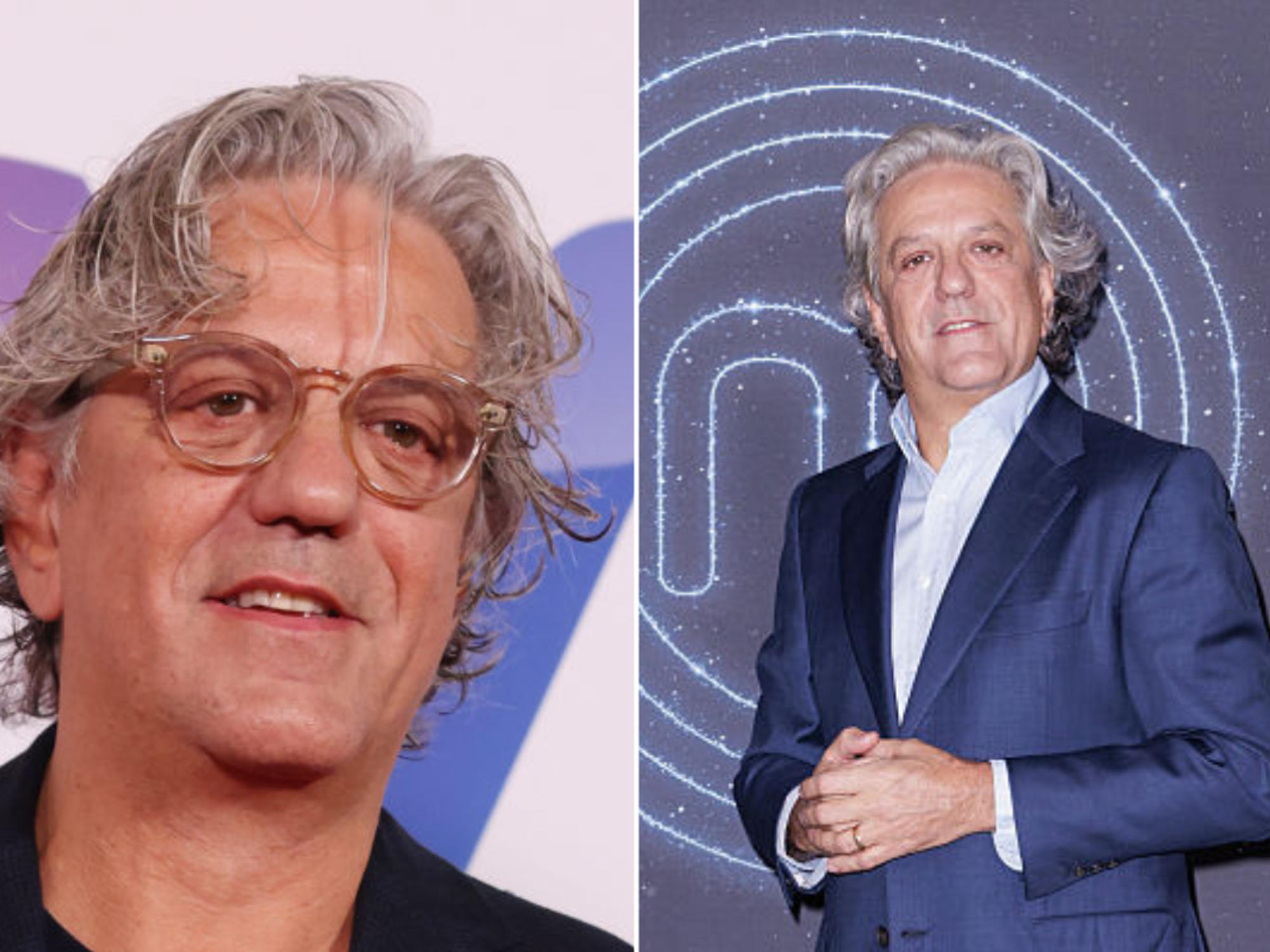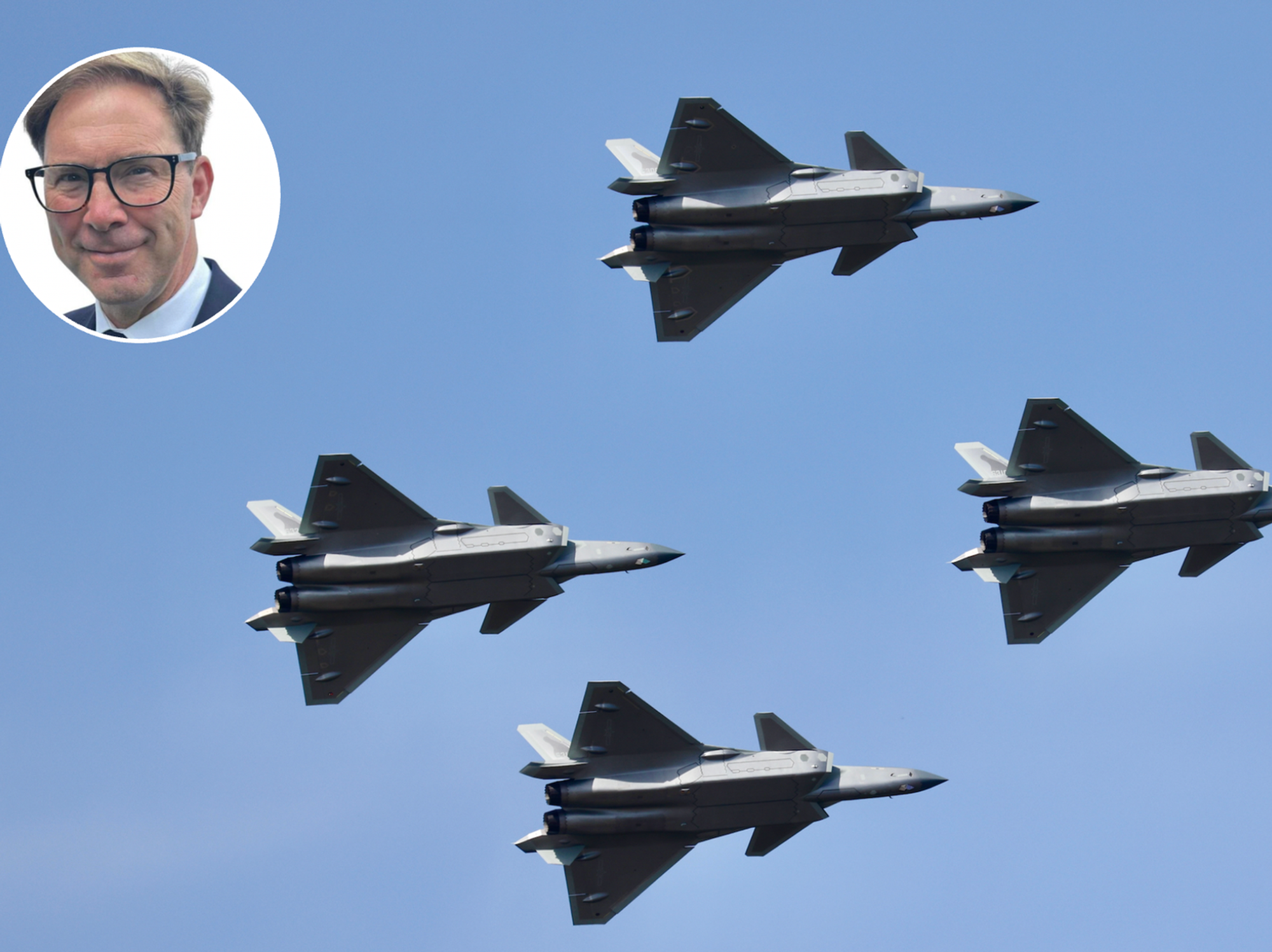Archaeology breakthrough as treasure-laden burial chamber found hidden among Terracotta Army
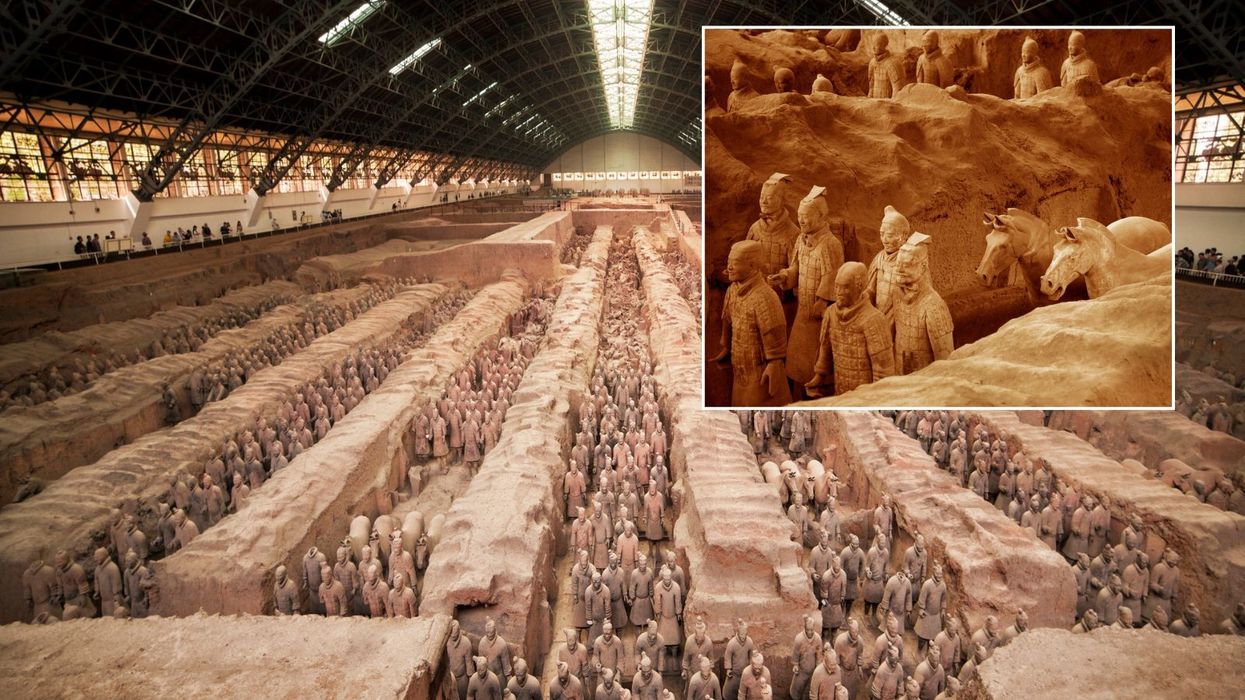
A 16-tonne coffin hidden with treasures has been found inside a tomb which could belong to the son of China’s first emperor
|Getty

The tomb is one of nine found in 2011 which is guarded in the afterlife by the Terracotta Army
Don't Miss
Most Read
Latest
A 16-tonne coffin hidden with treasures has been found inside a tomb which could belong to the son of China’s first emperor.
The discovery comes half a century after the Terracotta Army was located.
Archaeologists are now analysing the coffin to determine whether its contents belong to Prince Gao, a child of Qin Shi Huang - the first emperor of China.
The tomb is one of nine found in 2011 which is guarded in the afterlife by the Terracotta Army.
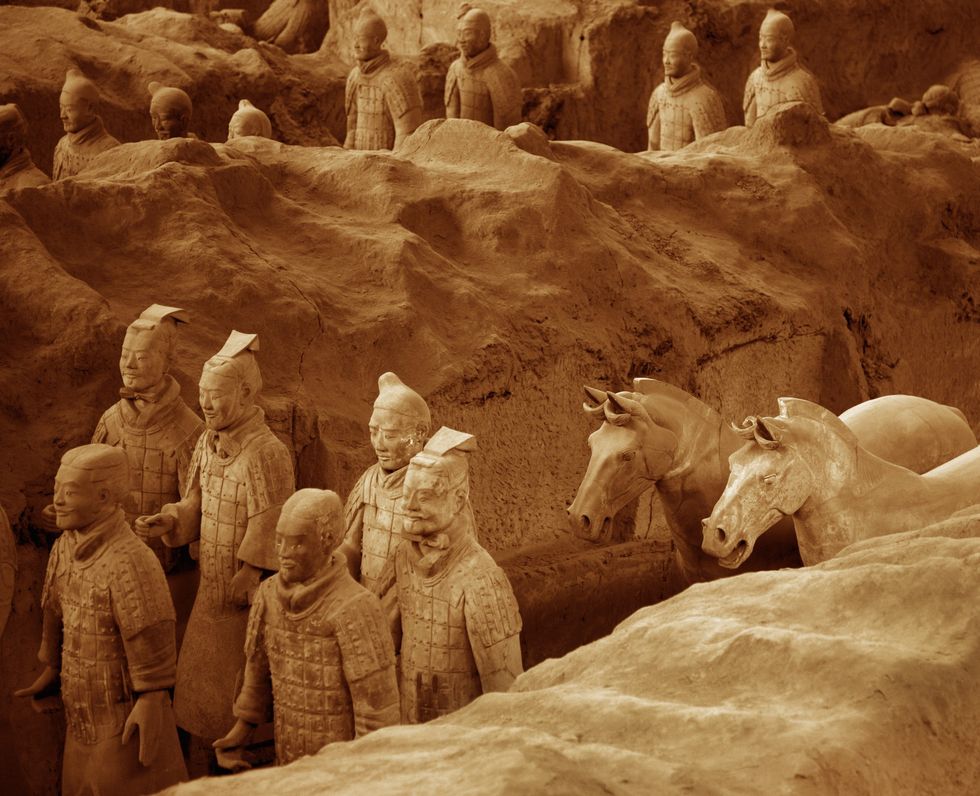
The discovery comes half a century after the Terracotta Army was located
|Getty
Despite excavation usually being prohibited, experts began digging after rain threatened to damage the tomb.
The coffin appeared untouched by grave robbers but was badly decayed.
Treasures were discovered inside the tomb including weapons and armour, jade and 6,000 bronze coins.
There was also a pair of gold and silver camels and a whole set of utensils and crockery for use in the afterlife.
Experts say the man appears to be a warrior as he was given a grand burial.
LATEST DEVELOPMENTS:
According to a 2,000-year-old story told as part of the Shiji - a combination of history and epic drama written by Sima Qian - a year after the first emperor died, his youngest son Hu Hai took over the throne.
After killing most of his brothers and sisters, the legend says that Hu Hai’s brother, Prince Gao wanted to run from his terror.
However, Prince Gao told Hu Hai that he had let their father down by not following him into the afterlife.
He then requested to die and be buried in the first emperor’s mausoleum.
“That’s why the excavation is so exciting,” Hui Ming Tak Ted, a historian of the Qin dynasty and associate professor at Oxford University told The Telegraph.
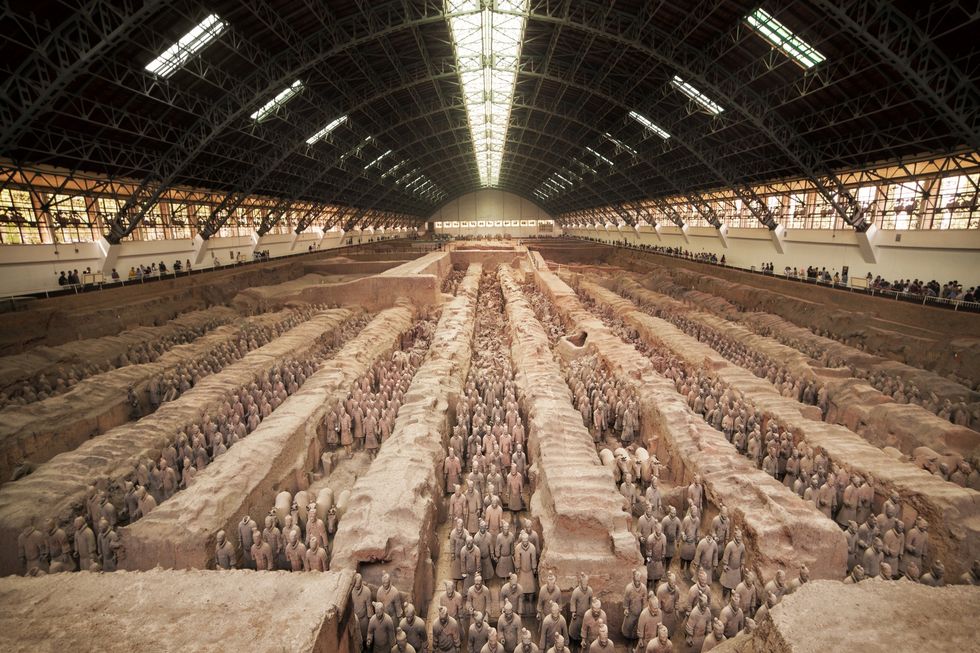
Despite excavation usually being prohibited, experts began digging after rain threatened to damage the tomb
|Getty
“For the first time in 2,000 years, we have a chance to figure out if what Sima Qian wrote is correct.”
Tests are being carried out on the coffin to narrow down who the coffin belongs to.
“After the first emperor died, his sons all came to a bad end, so I’m still more inclined to believe that this tomb belongs to a high-ranking nobleman or army chief,” Jiang Wenxiao, the excavation leader, said.
Wenxiao added: “The tomb was so precisely built. So deep, so large in scale. Most ancient tombs have been robbed so we didn’t have much hope for the coffin chamber. But it turned out it hadn’t been robbed. We were amazed.”





